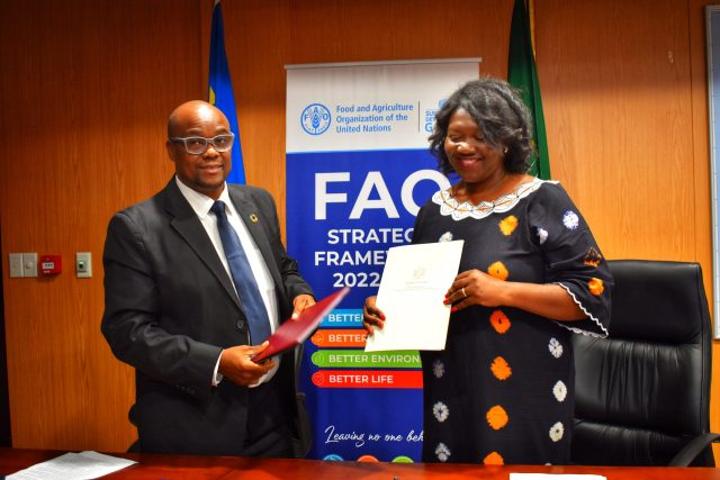Africa-Press – Namibia. The Food and Agriculture Organization of the United Nations (FAO) is supporting Namibia’s Ministry of Agriculture, Water and Land Reform (MAWLR) in reviewing and refining laws governing plant quarantine and the management of fertilizers, animal feed, and agricultural remedies.
The four-day Regional Consultations of Gap Analysis Reports and Outline of Bill’s workshop is taking place in Keetmanshoop in Namibia’s southern region of //Karas. The event forms part of a two-year Technical Cooperation Programme (TCP) between the FAO and MAWLR aimed at revising laws regulating plant quarantine and the management of fertilizers, animal feed, and agricultural remedies.
The workshop aims to prioritize the development of appropriate legislation and revise the structure of the Plant Health Bill based on stakeholder recommendations. Around 40 participants from various public and private institutions and NGOs, including the Namibia National Farmers Union, Namibia Agricultural Union, MeatCo, Meat Board of Namibia, Ministry of Justice, //Karas Regional Council, Directorate of Veterinary Services (MAWLR), National Commission on Research, Science and Technology, Namibia Standards Institute, Coopers Environmental, University of Namibia, and Namibia University of Science and Technology are attending the event, which will end tomorrow.
During the opening of the consultations, the Chief Regional Officer of the //Kharas Regional Council, Bendictus Diergaadt, noted that the current national legislations regulating plant quarantine and the management of fertilizers, animal feed, and agricultural remedies are outdated and need to be reviewed. He highlighted legislation such as the Namibia Plant Quarantine Act of 2008, which needs its provisions aligned with the International Plant Protection Convention (IPPC) standards. Erich Petrus, Deputy Director of the MAWLR’s Directorate of Agricultural Production, Extension, and Engineering Services (DAPEES), echoed that identified acts are outdated and require review and alignment with current international instruments such as IPPC, World Trade Organization (WTO), and World Organization for Animal Health (WOAH) regulations.
Nagris Bozorova, Lead Technical Officer in the FAO Legal Office, emphasized that the workshop’s primary aim is to refine the legal assessment based on stakeholder recommendations. “We have four legal assessments for you to present those findings and recommendations and to discuss because hearing from you is very important for us,” she said. The workshop’s objectives include the development of framework legislation for pesticide management and the formulation of renewed legislation on feed safety and quality.
For More News And Analysis About Namibia Follow Africa-Press






